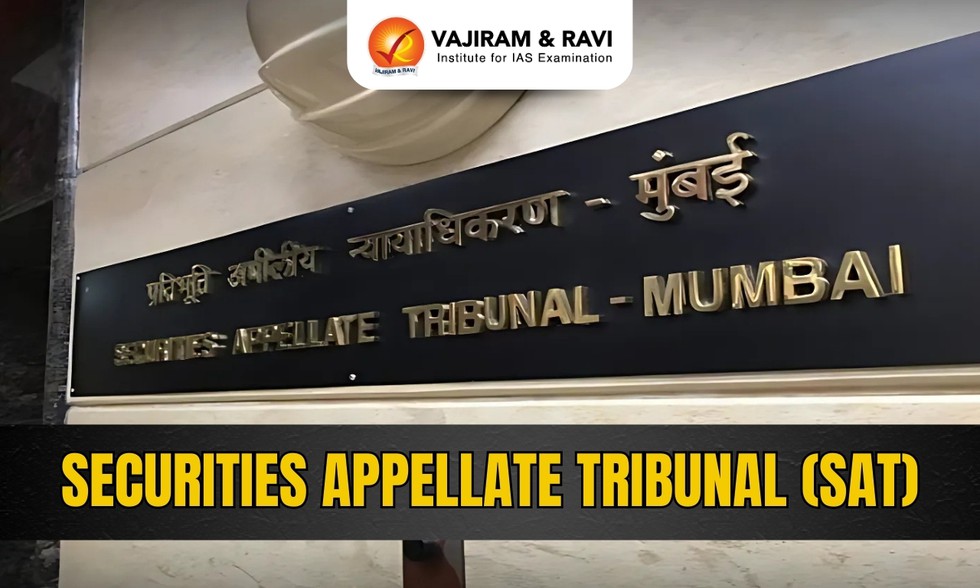About Securities Appellate Tribunal (SAT):
- The SAT is a statutory body established under the Securities and Exchange Board of India Act, 1992.
- As a quasi-judicial body, SAT’s primary objective is to hear and dispose of appeals against orders passed by SEBI or by an adjudicating officer under the Act.
- It has jurisdiction over the whole of India and operates from Mumbai.
- The SAT also hears appeals against the following orders:
- Orders issued by the Insurance Regulatory and Development Authority of India (IRDAI) in relation to cases filed before it.
- Orders issued by the Pension Fund Regulatory and Development Authority (PFRDA) in relation to cases filed before it.
- Composition:
- The SAT consists of one Presiding Officer and such a number of judicial and technical members as the Central Government may determine.
- The person so appointed as the presiding Officer should meet the following requirements:
- The retired or sitting judge of the Supreme Court
- Chief Justice of the High Court
- Judge of the High Court, who has completed at least seven years of service as a judge in a high court.
- Judicial Member: Judge of the High Court for at least five years of service.
- Technical Member:
- Secretary or an Additional Secretary in the Ministry or Department of the Central Government or any equivalent post in the Central Government or a State Government; or
- Person of proven ability, integrity, and standing, having special knowledge and professional experience of not less than 15 years in the financial sector, including the securities market, pension funds, commodity derivatives, or insurance.
- The Presiding Officer and Judicial Members shall be appointed by the Central Government in consultation with the Chief Justice of India or its nominee.
- Tenure:
- The tenure for the Presiding Officer and other members will be five years from the date of appointment, and they shall be eligible for re-appointment for another term of maximum five years.
- However, no presiding officer or member shall hold office after he/she has attained the age of 70.
- Powers:
- SAT exercises the powers of a civil court and has the authority to summon and enforce the attendance of witnesses, receive evidence, and examine witnesses under oath.
- It also has the power to require the discovery and production of documents.
- Who can make an appeal? These appeals may be filed by any person aggrieved by SEBI's decisions, including market participants, listed companies, intermediaries, or investors.
- Appeal against the orders of the SAT:
- Every person aggrieved by any order or decision of SAT can file an appeal to the supreme court.
- An appeal can only be made on any question of law.
